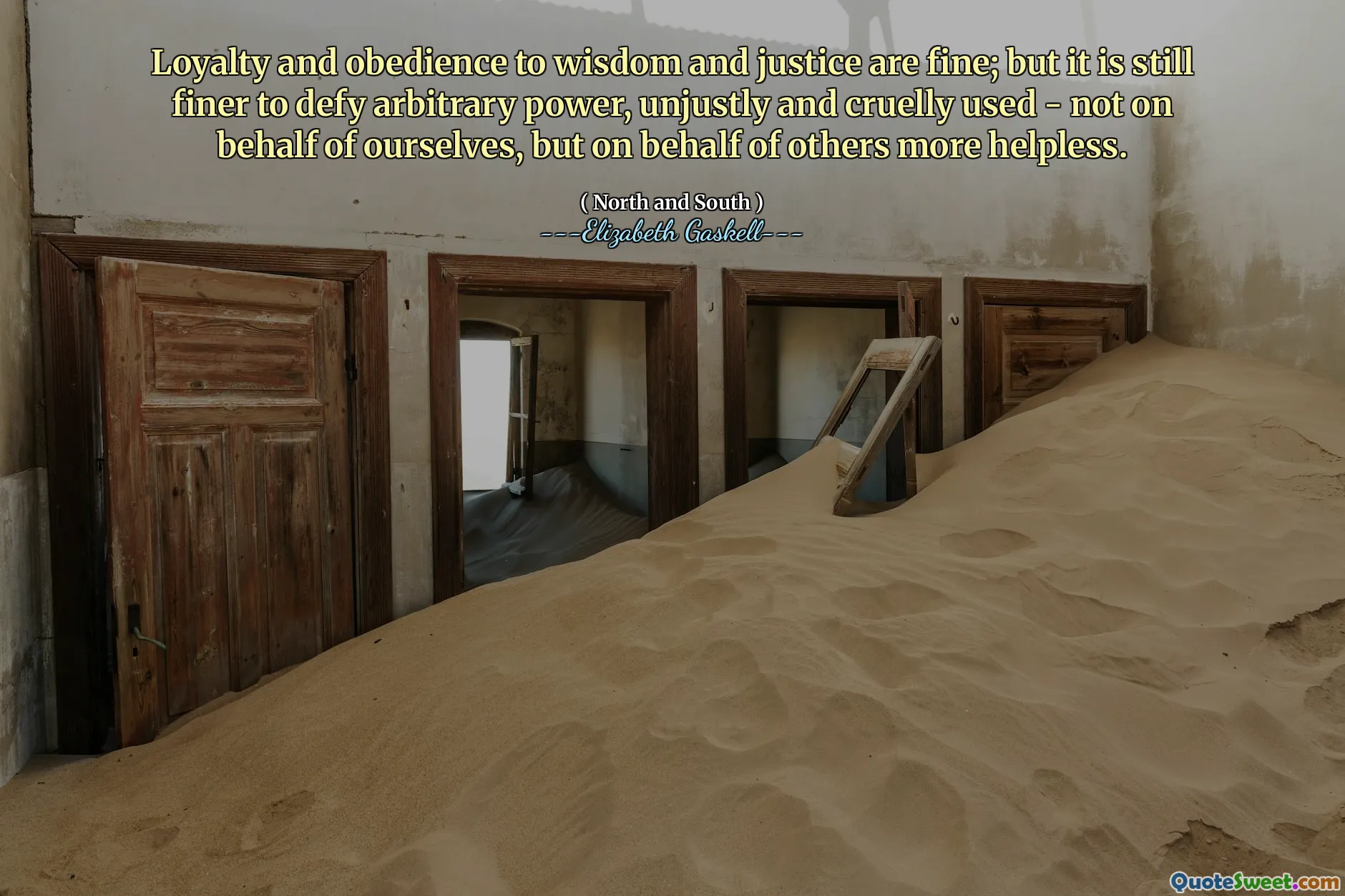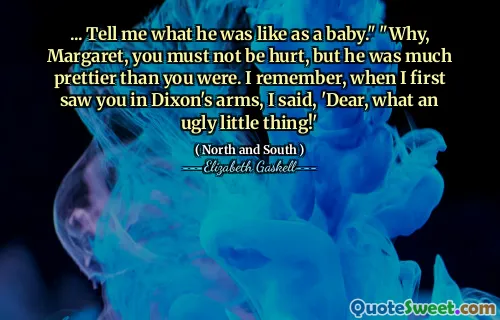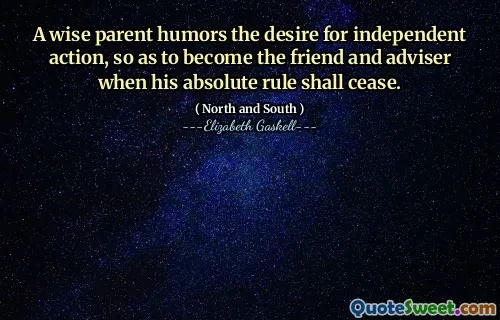
Loyalty and obedience to wisdom and justice are fine; but it is still finer to defy arbitrary power, unjustly and cruelly used - not on behalf of ourselves, but on behalf of others more helpless.
This quote underscores the profound moral dilemma faced when authority or power is wielded unjustly. While loyalty and obedience are often seen as virtues that promote social harmony and order, the quote challenges us to consider the higher moral obligation to oppose tyranny and cruelty, especially when it sacrifices the vulnerable. In societies governed by laws and principles of justice,it is easy to adhere to the status quo. However, when those in power misuse their authority for personal gain or harm innocent people, strict obedience becomes morally questionable. Acting on behalf of the helpless signifies a commitment to empathy, human rights, and moral integrity, even if it requires risking personal safety, social disapproval, or legal repercussions. Historically, many pivotal moments of change—civil rights, resistance against oppression, and social justice movements—have been driven by individuals and groups who chose to defy unjust authority. Their actions often faced condemnation initially, but ultimately contributed to societal progress. This quote reminds us that true moral strength lies in protecting the vulnerable and challenging wrongful authority, not merely in following established rules when they conflict with justice. It encourages a proactive stance against injustice, advocating that our sense of right must sometimes transcend orders and laws, guided by compassion and integrity. Ultimately, it calls us to reflect on our responsibilities in the face of cruelty and injustice, reaffirming that standing up for those who cannot stand up for themselves is a hallmark of genuine moral courage.










